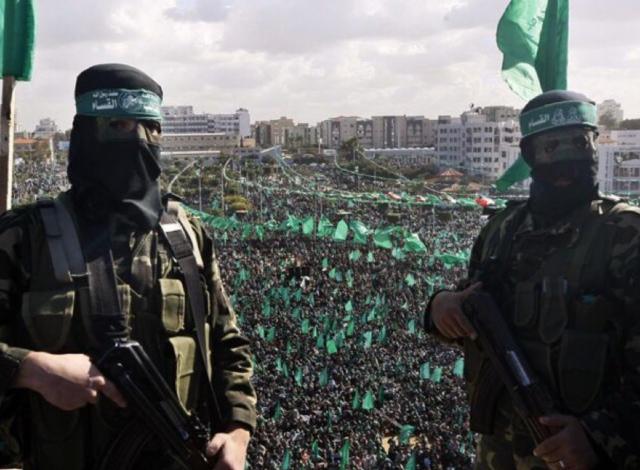As the holy month of Ramadan approaches, the landscape of the ongoing conflict between Israel and Hamas appears increasingly complex, with recent developments raising significant questions about the potential for peace and the humanitarian situation in Gaza.
Hamas, the Palestinian militant group controlling Gaza, has called for Palestinians to converge on Jerusalem's Al-Aqsa Mosque at the start of Ramadan. This call, issued by Hamas leader Ismail Haniyeh, seems to be a strategic move to influence the ongoing negotiations for a truce in Gaza, which U.S. President Joe Biden has expressed hope will be in place by the onset of Ramadan.
Israeli defense minister: Iran, Hizballah, and Hamas are planning 'October 7, part two' for Ramadan - https://t.co/Vbwt5ipYMm
— Robert Spencer (@jihadwatchRS) February 28, 2024
The backdrop to this call is a statement by President Biden, indicating an agreement in principle between Israel and Hamas for a ceasefire during Ramadan, contingent upon the release of hostages held by Hamas. The proposed agreement, as outlined by sources, also includes provisions for increasing aid into Gaza and the release of Palestinian prisoners, aiming for a resolution by March 4.
The significance of Ramadan prayers at Jerusalem's Al-Aqsa Mosque cannot be overstated, with Israel stating it would allow these prayers but with security-imposed limits. This decision has the potential to lead to clashes, especially if violence in Gaza persists.
Hamas chief Haniyeh threatens with a hamas led march to al Aqsa on the first day of Ramadan; huge securitythreat
— Brian BJ (@iamBrianBJ) February 28, 2024
Ismail Haniyeh has officially called for violent riots upon Jerusalem and Al Aqsa from the first day of Ramadan. This is a direct threat on the overall security of… pic.twitter.com/cLZULFTltg
Haniyeh's call to Palestinians in Jerusalem and the West Bank to march to Al-Aqsa and his description of Hamas' October 7 incursion into Israel as a defensive measure highlight the group's stance and its readiness to continue fighting despite showing flexibility in negotiations. Israel, for its part, demands Hamas to abandon what it considers "outlandish demands".
At the heart of the negotiations is a proposal for a 40-day ceasefire discussed in Paris, marking a significant step towards an extended truce in the five-month-old conflict. However, the talks, which are ongoing in Qatar, have yet to resolve key issues, including a permanent end to the conflict and the withdrawal of Israeli forces, as demanded by Hamas.
Israel fears that Hamas could use the Islamic holy month of Ramadan as a second phase of the attacks that began on Oct. 7 https://t.co/BbZg6ycQgz
— The Wall Street Journal (@WSJ) February 28, 2024
Haniyeh's appeal to the Axis of Resistance and Arab states for increased support underscores the broader regional dynamics at play, particularly the call to break what he describes as a "starvation conspiracy" in Gaza. This allegation points to a deeper crisis, with Palestinians in Gaza facing acute hunger, a situation Israel attributes to its blockade aimed at dismantling Hamas, which it views as an existential threat.
Humanitarian efforts have seen some cooperation, with Israel facilitating airdrops of food aid to southern Gaza with the support of various countries. Yet, the grim reality on the ground, marked by a rising Palestinian death toll and ongoing military operations, paints a bleak picture of the conflict's human cost.
#Hamas leader Yahya Sinwar may get his "second chance" soon during the holy month of Ramadan, fmr. head of Israel military intel @YadlinAmos warns.
— FDD (@FDD) February 25, 2024
He details exactly how Israel should handle rising tensions on the FDD Morning Brief w/ @JSchanzer. 👇https://t.co/gK7VobaLvH pic.twitter.com/lhanvBuEJa
The ongoing Israeli military actions in Gaza, especially in areas previously declared under control, alongside plans to increase Israeli settlements in the West Bank, further complicate the path to peace.
As mediators intensify their efforts ahead of Ramadan, the possibility of reaching an agreement remains uncertain, with both sides facing significant pressures and challenges. The international community watches closely, hoping for a resolution that can pave the way for lasting peace and address the dire humanitarian situation in Gaza.


